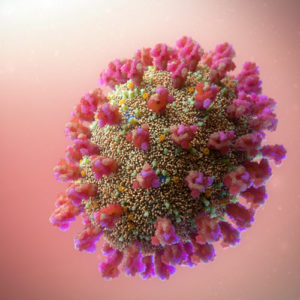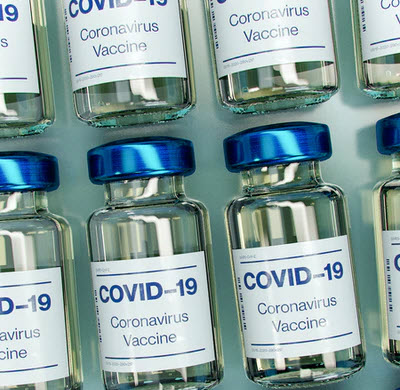Is It Your Fault? (A mini-blog series.)
I predict that psychiatrists will soon be seeing, in younger people, many more memory problems, fatigue, trouble thinking, and related brain function impairments. Here’s why.
I haven’t seen them yet in my practice, but have been reading about it. See JAMA, the Journal of the American Medical Association (“As Their Numbers Grow, COVID-19 ‘Long Haulers’ Stump Experts”, October 13, 2020). Briefly, people who were infected with SARS-CoV-2 and who don’t fully recover over weeks and months, have experiences of fatigue, shortness of breath, joint pain, sweating, bowel problems, and headache. The most debilitating post-COVID symptoms are attributed to brain systems: poor concentration, impaired memory, “brain fog”, and the distress of severe fatigue.

This group of conditions is very suggestive of previously identified CFS (chronic fatigue syndrome, also more officially known as ME or myalgic encephalomyelitis). A striking symptom of ME is an unexpected “crash” of total exhaustion after ordinary activity like climbing stairs, which can last for many hours. Other post-viral syndromes include dysautonomias (DISS-auto-NO-mee-yuhs).
The autonomic nervous system controls
- Sweating
- Blood pressure
- Heart rate,
- Bowel and bladder
- Sexual activity
- Emotional signs of flight or fight, etc.
These illnesses are usually thought to follow virus infections because the immune system has been overactive and has produced antibodies which mistakenly attack the body’s and brain’s own cells (auto-antibodies). Other auto-immune processes are linked to lupus, rheumatoid arthritis, hypothyroidism, type 1 diabetes, multiple sclerosis, and many other diseases.
To summarize: Immune system antibodies which attack viruses may mistakenly attack the body’s own cells. If damage is caused in the brain and nervous system, there can be long lasting problems even after the virus is gone. The longer lasting results can be experienced as severe fatigue, memory loss, fogginess, slowed movements, pain.
Based on my past experience evaluating chronic fatigue and other conditions where the cause is not specifically known, many people (including physicians) begin to suspect that these problems are “not real” or at least not medical conditions that they know how to treat. Then the patients feel defensive and embarrassed and feel not understood and not listened to. They feel they are being told “it is all in your head”. The phrase “medical gaslighting” has been used to describe this process.
I believe the phrase “COVID-19 Long hauler” has come into usage to take the initiative and prevent the usual process of minimizing and blaming and suspiciousness that usually attaches to mental and psychiatric problems. Part of the problem is that we have in our brains a set of “cheater detection” mechanisms that become overactive. The self help groups of long haulers are being proactive in explaining medical mechanisms for the post viral problems that “don’t go away like they should”.

Of course to my mind, the statement that it is all in your head is not demeaning, although it would be more accurate to say “some of it is in your head” since we are talking about damage to brain cells which control memory, and damage to nervous tissue which control the smooth muscles of the sympathetic and parasympathetic system.
The term “long hauler” bothers me but I can’t say why exactly. I believe it may be because I don’t like the necessity for being defensive about the wonderful complexity of the brain’s trillions of synapses, and the seemingly magical things that can be accomplished. Another term “gaslighting” has fascinating implications. It usually means telling or trying to convince someone that their perceptions or thoughts are not legitimate or not real.
Gaslighting became popular following the 1944 film “Gaslight” with Ingrid Bergman and Charles Boyer. As part of a criminal scheme, the husband’s secret use of the pre-electric gas lamp in the attic causes the wife to perceive flickerings in the downstairs gas lamps. He denies this and other realities and attempts to cause her to doubt her own reality testing so as to gain control over her independence. It’s an influence maneuver, one of many that we social creatures use with one another.
What will be the aftermath of the SARS-CoV-2 epidemic? Business, education, medicine, entertainment, relationships- all are changing. What will happen in my psychiatric practice and that of neurologists, endocrinologists, cardiologists, pulmonologists, and others?

 The Single Key To Knowing If You Are Addicted
The Single Key To Knowing If You Are Addicted
I am a long hauler now. Covid July 27 and still sick . I have had every symptom, but lost of taste and cough , yet I lost smell and had pneumonia. I can’t remember my best friends names sometimes.
Thanks
I have actually found the doctors we have interacted with since March when Covid 19 became real to be more accessible and compassionate. They seem to pay more attention in the video conferencing and make sure they are understood and understand the patient. It is definitely not business as usual, and their efforts to provide medical services are greatly appreciated by my husband and me.
Medical gaslighting has never happened like this on a global scale.
The doctors don’t know what to do, but instead of just admitting that, which is understandable with a new virus, they try to minimize our symptoms and they try to convince us that it’s all psychological. It’s not. I know A LOT about psychology and I can tell you that this virus causes very physical symptoms that can linger for months, even a year or longer.
And we, covid-19 patients are sick and tired of being gaslit. Don’t try to make us think that we are crazy on top of this horrible disease. Would they tell a cancer patient that their symptoms are not real? They wouldn’t. So they have to STOP with the gaslighting because THAT is what is mentally damaging us, not the virus.
So doctors are actually creating a new problem on top of an already huge problem.
Domestic abusers use gaslighting to prepare an advance defense against the abuse. Often used in domestic cases against women who are described as crazy and have been characterized that way for months or years before the victim admits the abuse to third parties. Gaslighting is not merely a defense, it is a form of emotional abuse in itself coupled with acts that are not gaslighting but actually happen. This leads to the belief that the victim is paranoid.
Paranoia is an unreasonable fear. If something happens to a victim how can it be unreasonable for her to be suspicious and watchful?